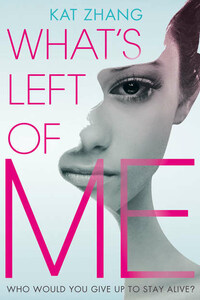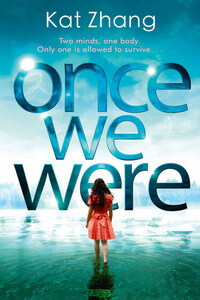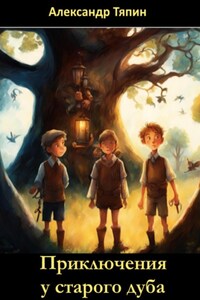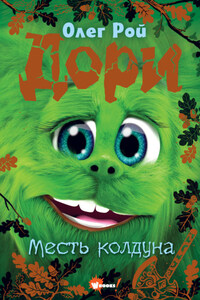ddie and I were born into the same body, our soulsâ ghostly fingers entwined before we gasped our very first breath. Our earliest years together were also our happiest. Then came the worriesâthe tightness around our parentsâ mouths, the frowns lining our kindergarten teacherâs forehead, the question everyone whispered when they thought we couldnât hear.
Why arenât they settling?
Settling.
We tried to form the word in our five-year-old mouth, tasting it on our tongue.
SetâTullâLing.
We knew what it meant. Kind of. It meant one of us was supposed to take control. It meant the other was supposed to fade away. I know now that it means much, much more than that. But at five, Addie and I were still naive, still oblivious.
The varnish of innocence began wearing away by first grade. Our gray-haired guidance counselor made the first scratch.
âYou know, dearies, settling isnât scary,â sheâd say as we watched her thin, lipstick-reddened mouth. âIt might seem like it now, but it happens to everyone. The recessive soul, whichever one of you it is, will simply ⦠go to sleep.â
She never mentioned who she thought would survive, but she didnât need to. By first grade, everyone believed Addie had been born the dominant soul. She could move us left when I wanted to go right, refuse to open her mouth when I wanted to eat, cry No when I wanted so desperately to say Yes. She could do it all with so little effort, and as time passed, I grew ever weaker while her control increased.
But I could still force my way through at timesâand I did. When Mom asked about our day, I pulled together all my strength to tell her my version of things. When we played hide-and-seek, I made us duck behind the hedges instead of run for home base. At eight, I jerked us while bringing Dad his coffee. The burns left scars on our hands.
The more my strength waned, the fiercer I scrabbled to hold on, lashing out in any way I could, trying to convince myself I wasnât going to disappear. Addie hated me for it. I couldnât help myself. I remembered the freedom I used to haveânever complete, of course, but I remembered when I could ask our mother for a drink of water, for a kiss when we fell, for a hug.
Addie shouted whenever we fought.
And for a long time, I believed that someday, I would.
We saw our first specialist at six. Specialists who were a lot pushier than the guidance counselor. Specialists who did their little tests, asked their little questions, and charged their not-so-little fees. By the time our younger brothers reached settling age, Addie and I had been through two therapists and four types of medication, all trying to do what nature should have already done: Get rid of the recessive soul.
Get rid of me.
Our parents were so relieved when my outbursts began disappearing, when the doctors came back with positive reports in their hands. They tried to keep it concealed, but we heard the sighed Finallys outside our door hours after theyâd kissed us good night. For years, weâd been the thorn of the neighborhood, the dirty little secret that wasnât so secret. The girls who just wouldnât settle.
Nobody knew how in the middle of the night, Addie let me come out and walk around our bedroom with the last of my strength, touching the cold windowpanes and crying my own tears.
sheâd whispered then. And I knew she really was, despite everything sheâd said before. But that didnât change anything.
I was terrified. I was eleven years old, and though Iâd been told my entire short life that it was only natural for the recessive soul to fade away, I didnât want to go. I wanted twenty thousand more sunrises, three thousand more hot summer days at the pool. I wanted to know what it was like to have a first kiss. The other recessives were lucky to have disappeared at four or five. They knew less.
Maybe thatâs why things turned out the way they did. I wanted life too badly. I refused to let go. I didnât completely fade away.
My motor controls vanished, yes, but I remained, trapped in our head. Watching, listening, but paralyzed.
Nobody but Addie and I knew, and Addie wasnât about to tell. By this time, we knew what awaited kids who never settled, who became hybrids. Our head was filled with images of the institutions where they were squirreled awayânever to return.
Eventually, the doctors gave us a clean bill of health. The guidance counselor bid us good-bye with a pleased little smile. Our parents were ecstatic. They packed everything up and moved us four hours away to a new state, a new neighborhood. One where no one knew who we were. Where we could be more than That Family With The Strange Little Girl.









